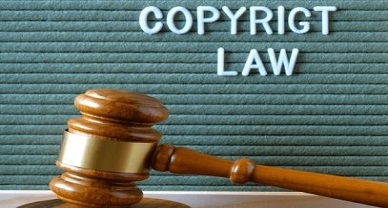Navigating the Boundaries: Freedom of Expression vs. Social Responsibility
INTRODUCTION – MEANING OF THE WORD ‘EXPRESSION’
Before delving into the issue of how India became regressive while interpreting ‘expression’ as mentioned under Article 19(1)(a) by hand-in-hand with the words such as ‘immorality’ and/or ‘indecency’ and imposed reasonable restriction under the pretext of the same words, let us give a cursory glance to various definitions of ‘expression.’
Dictionary Meaning
The dictionary definition of the word ‘express’ is to ‘show or make known (a feeling, an opinion, etc.) by words, looks, actions, etc., and to speak and write (clearly) what one thinks, feels, etc. ‘Expression’ has been defined as the action or process of expressing.[i]
The word has also been defined as ‘to represent or make known by a likeness, words, signs, symbols, etc. to put into words, to symbolise, to state explicitly, intended or send for a particular purpose. However, the word ‘expression’ has defined as the act or mode of representing or giving utterance or revelation by language art, features, etc.[ii]
To express is to represent in words, to make known one’s thoughts, feelings, etc. to represent by signs, symbols, etc. Expression is the act of expressing, especially by words, a word or a phrase, a look, intonation, a manner of showing feeling in communicating or performing.[iii]
Legal Definition
When it comes to the legal meaning of the word ‘expression’, the Merriam-Webster’s Dictionary of Law defines it as – “an act, process, or instance of representing or conveying in words or some other medium, that is, speech.”
It can also be defined as “a mode or means of expressing an idea, opinion, or thought.” Further, in contractual terms, the ‘expression’ is determined, when they [actions of the party/parties to the contract] are “capable of several significations, so as to give operation to the agreement, act, or will, if it can be done.”
Provided that an ‘expression’ in contractual terms should always be understood in the sense most agreeable to the nature of the contract.
JUDICIAL INTERPRETATION
Over the years, India has been in a constant struggle to interpret the scope of Article 19(1)(a) of the Indian Constitution. Thankfully, the Judiciary has managed to widen the scope of the freedom of speech and expression through its interpretation in various landmark cases. With the advancement of technology and modern innovation, the Judiciary was able to bring in the contemporary flavour in its interpretation of the freedom of press (‘expression’ of thoughts through wired or wireless network) in cases like Odyssey Communications (P) Ltd. v. Lokvidayan Sanghatana,[iv] the petitioners challenged the airing of a show on Doordarshan citing that it gave rise to blind faith and superstitions. This petition was dismissed by the Supreme Court as the petitioners had failed to show any evidence regarding the said prejudice to the public.
In the case of Sanjoy Narayan, Hindustan Times v High Court of Allahabad,[v] it was observed that the dignity of the Courts and people’s faith in the administration should not be tarnished because of biased and unverified reporting. In order to avoid such biased reporting, one must be careful to verify the facts and do some research on the subject being reported before a publication in the form of ‘expression’ is brought out.[vi]
The Supreme Court further bolstered right to expression under Article 19 of the Indian Constitution by bringing in the right to receive and impart/transmit information through a landmark judgment of Union of India v Association of Democratic Reforms[vii]. As per Hon’ble lordships, “One-sided information, disinformation, misinformation and non-information, all equally creates a uniformed citizenry which makes democracy a farce.” Thus, freedom of speech and expression shall include right receive and transmit information, which is inclusive of freedom to hold opinions.[viii]

Thus, to sum it up, ‘expression’ is an evolving term, which in the past used to include books, pamphlets, artistic representations and so on, however, in the recent times the reals of this terms have changed and led to an inclusion of digital arena as well. As a result, the Hon’ble Apex Court in Anuradha Bhasin vs. Union of India, recognised the right to access the internet under Articles 19(1)(a) and 19(1)(g) of the Constitution of India. Thus, if you put a Facebook post, expressing your dissatisfaction to the acts of the government resulting in environmental degradation, then it is well within your right to freedom of expression as the concerned ‘Facebook post’ would fall under the ambit of the term ‘expression’ and no one can infringe or/and take away the right of yours.
The First Amendment of the US Constitution provided for the right to expression to all its citizens, which means that the government possess no authority to reprimand or restrict this freedom and the citizens can say, write, or in whatever medium they deem fit, express their opinion, criticism, etc. The Supreme Court of the US, while dealing with a moot question whether the students are allowed to express their opinions, criticism in the schools, categorically mentioned – “It can hardly be argued that either students or teachers shed their constitutional rights to freedom of expression . . . at the schoolhouse gates.”
However, the enjoyment of the freedom to expression should mot meddle with the rights of others or materially and substantially transgress the values and functioning of the institution concerned. For instance, in schools, while enjoying this freedom, one cannot start showing his/her middle finger to the teachers/professors or making vulgar comments and start misbehaving with them as it would infringe their right to live with dignity as well as the said act has high chances of falling within the ambit of ‘immoral’ and ‘indecent’ acts. Thus, a clear-cut distinction should be kept in mind while enjoying these rights. The restrictions also include ‘indecency’ and ‘immorality’. Hon’ble Supreme Court of India while considering the restriction imposed on the right to expression stated that – “…freedom of such amplitude might involve the risks of abuse. But the framers of the Constitution have reflected, with Madison who was the ‘leading spirit in the preparation of the First Amendment of the Federal Constitution’, that ‘it is better to leave a few of its noxious branches to their luxuriant growth, than, by pruning them away, to injure the vigour of those yielding the proper fruits’.” [ix]
Therefore, the right to expression is the flagbearer of a healthy, progressive and democratic society. It acts as a linchpin in self-government and leads to the creation of new ideas and knowledge, which lead to the discovery of truth, increase in the tolerance and receptivity. The freedom of expression means the right to express one’s convictions and opinions freely by word of mouth, writing, printing, pictures, in leaflets or on buttons, armbands or T-shirts, and various other methods including transmission through digital platforms. A democratic government attaches great importance to this freedom as without this freedom, appeal to the reason, which is the basis of democracy, cannot be entertained.[x]
Author:–Kaustubh Kumar, in case of any queries please contact/write back to us at support@ipandlegalfilings.com or IP & Legal Filing.
REFERENCES
[i] 4 AS HORNBLY, OXFORD ADVANCED LEARNERS’ DICTIONARY, 424-425 (AP Cowie, Oxford University Press) 1989
[ii] CM SCHWARZ, CHAMBERS 20TH CENTURY DICTIONARY, 445 (EM Kirkpatrick, Allied Publishers Limited), 1983
[iii] 1 NOAH WEBSTER, WEBTER’S UNIVERSAL DICTIONARY AND THESAURUS, 200 (Tormont Publications Inc.) 1993
[iv] 1988 AIR 1642, 1988 SCR Supl. (1) 486
[v] (2011) 13 SCC 155 (175)
[vi] 24 DURGA DAS BASU, INTRODUCTION TO THE CONSTITUTION OF INDIA, 133 (LexisNexis), 2020
[vii] (2002) 5 SCC 294
[viii] Union of India v Association of Democratic Reforms, (2002) 5 SCC 294
[ix] Romesh Thappar v State of Madras, AIR 1950 SC 124: 1950 SCR 594
[x] Ibid


